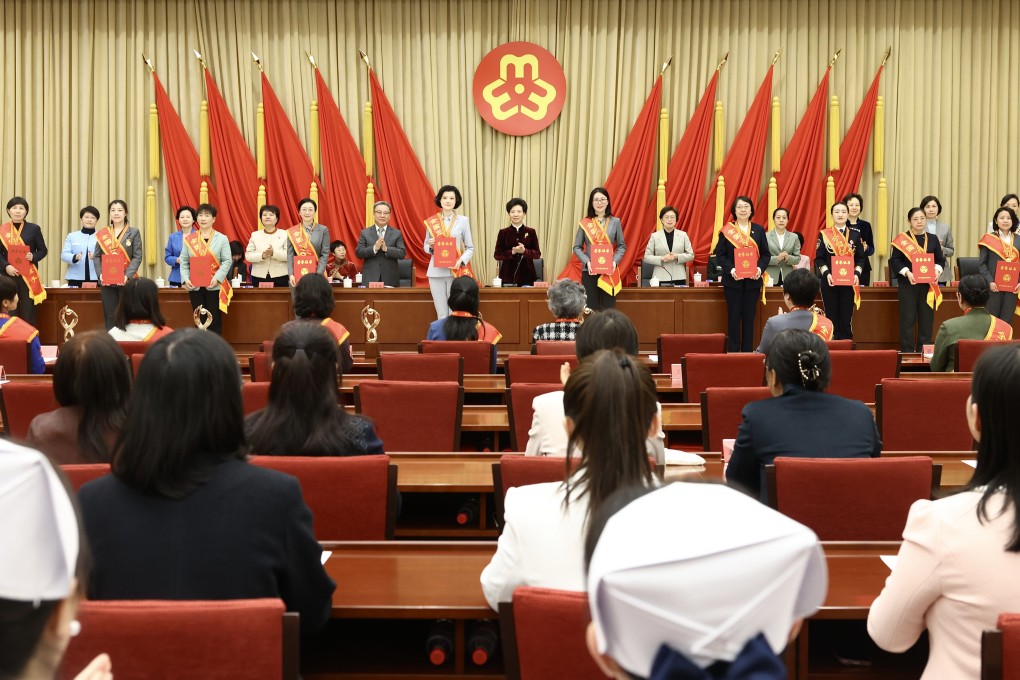Advertisement
Opinion | China will only benefit by welcoming women into high-level politics
- China’s respectable track record on incorporating women into the workforce falls short when it comes to the top echelons of politics
- Restricting the pool of talent at the top to half the population weakens badly needed competition and tells Chinese girls a career in politics is not for them
Reading Time:3 minutes
Why you can trust SCMP
5

Today, China joins the world in celebrating International Women’s Day. Mao Zedong once famously said that women hold up half the sky. According to World Bank data, China’s female labour force participation rate of more than 61 per cent is higher than many developed economies.
Chinese women work alongside men and contribute in almost every domain and at almost every level. All of China reaps the benefits of this participation and representation.
Unfortunately, one glaring exception is arguably the most important – high-level politics. Women have represented only a small percentage of the full members of the Communist Party of China’s Central Committee, with no clear upward trend and only slight fluctuations in this figure.
Advertisement
The past two decades represented the pinnacle of female representation in the Politburo, with one woman present among 25 members and even two between 2012 and 2017. But this is no longer the case, as the current Politburo includes only 24 men.
This contrasts with the National People’s Congress, where women represent more than a quarter of members, up from 20 per cent two decades ago. But that body lacks the power and influence of the Politburo or the Central Committee. The higher you move up the political ladder in China, the fewer women there are, until they become completely absent.
This isn’t just a problem of representation but a problem of efficient use of human resources. It’s a matter of concern not just for Chinese women but for the whole country. Women gaining greater access and representation in almost every domain creates more human resources, which in turn increases competition and delivers better results for the country.
Advertisement
Select Voice
Choose your listening speed
Get through articles 2x faster
1.25x
250 WPM
Slow
Average
Fast
1.25x

